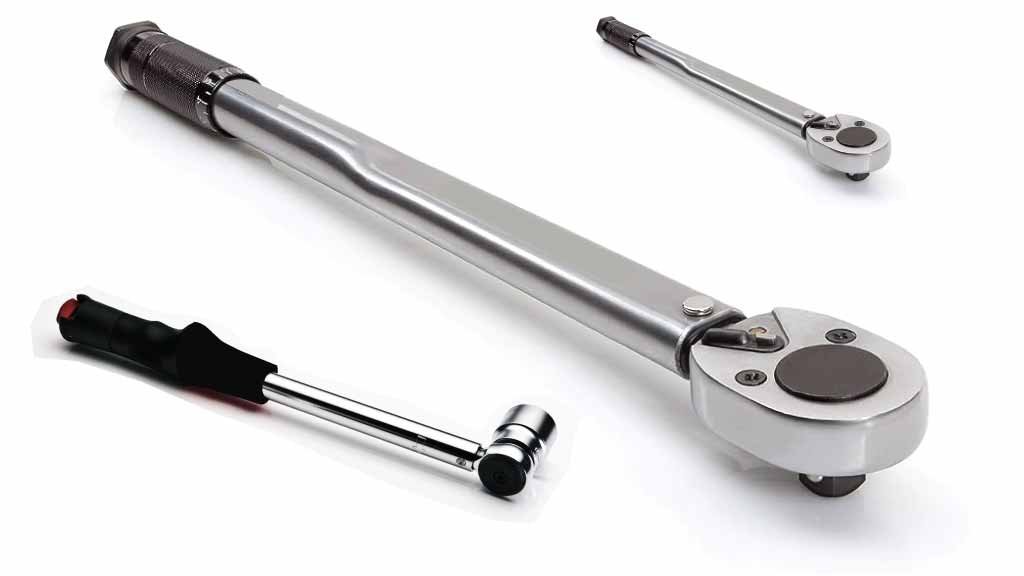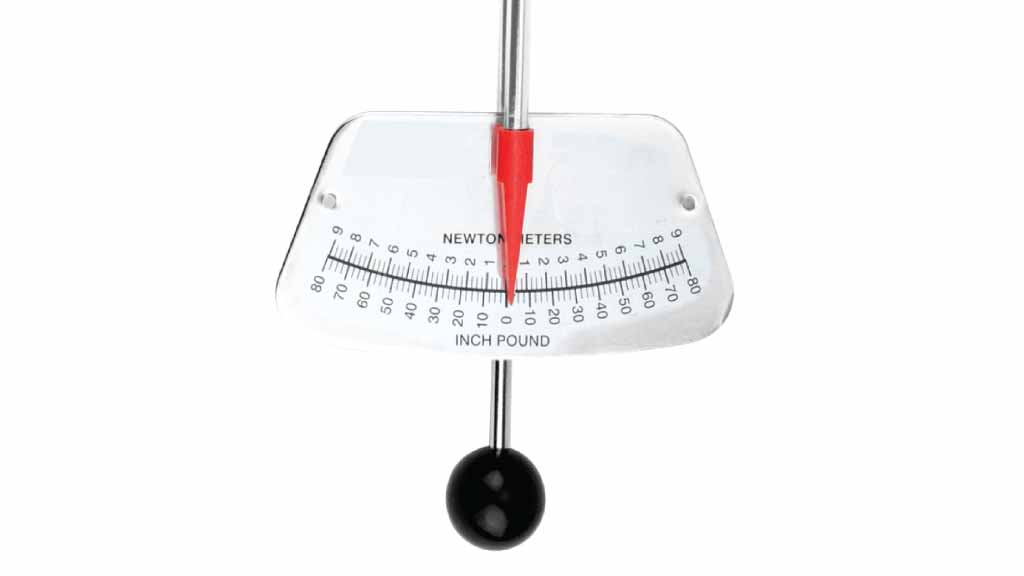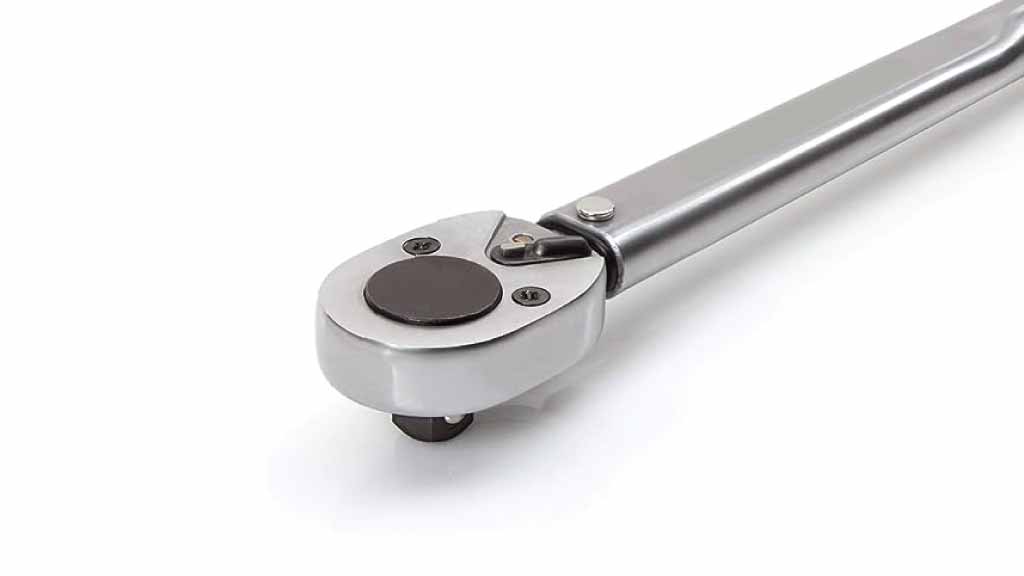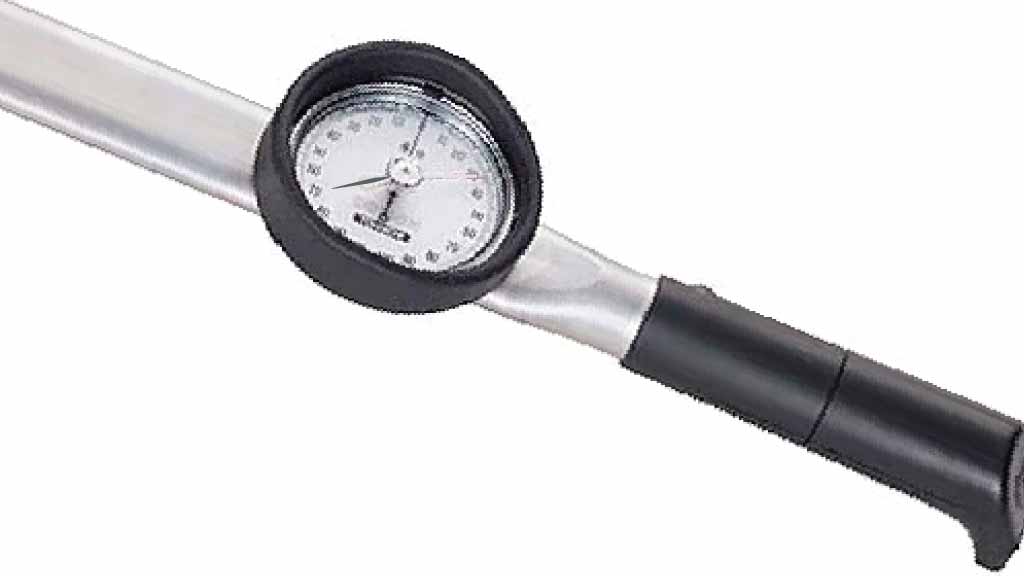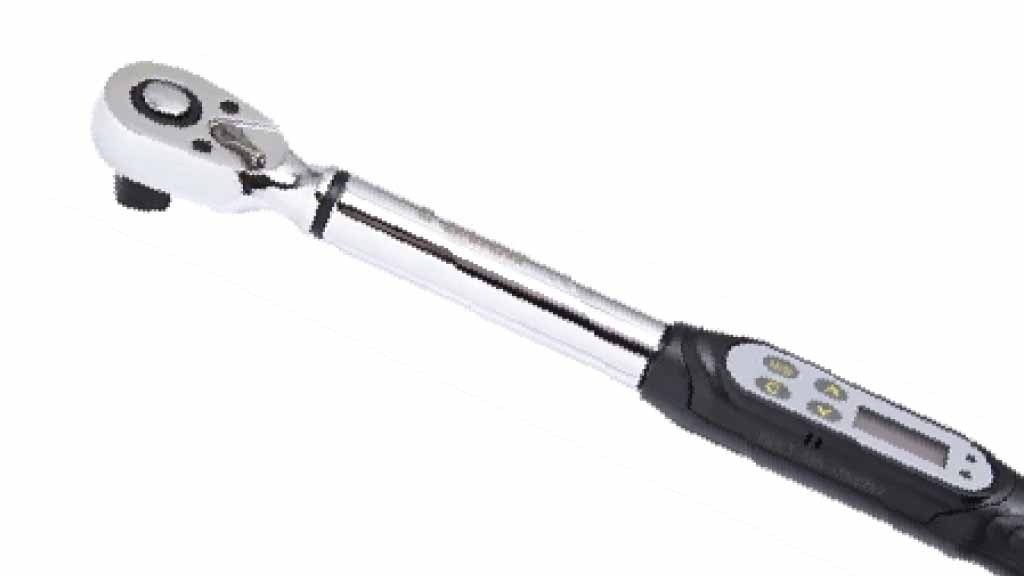A torque wrench is a specialized tool designed to precisely apply a specific amount of torque to a fastener, such as a nut or bolt. It is an essential instrument in various industries, including automotive, construction, manufacturing, and aerospace, where accurate torque application is critical for safety and performance. Torque wrenches come in different types, including beam, click, dial, and electronic variants, each offering distinct features and benefits. These wrenches typically feature a calibrated scale or display to indicate the applied torque, ensuring that fasteners are tightened to the required specifications.
If you are considering purchasing a torque wrench, there are several important factors to keep in mind to ensure you get the right tool for your needs. Here are some key points to consider before making your purchase. The versatility and precision of torque wrenches make them indispensable for tasks ranging from simple household repairs to complex engineering projects. In this guide, we will explore the key considerations to keep in mind when purchasing a torque wrench to ensure that you select the right tool for your specific needs.
Table of Contents
ToggleTypes of Torque Wrenches
Torque wrenches are invaluable tools in various industries, ensuring precise tightening of fasteners to meet safety and performance standards. There are several types of torque wrenches available, each with its unique features and advantages. Understanding the differences between these types can help you choose the most suitable one for your specific application.
1. Beam Torque Wrenches:
Beam torque wrenches are one of the oldest and simplest types of torque wrenches. They feature a straightforward design comprising a lever arm and a calibrated scale. When torque is applied to the fastener, the lever arm bends, and the scale displays the force exerted. This type of torque wrench is known for its durability, affordability, and ease of use. It dos not require calibration, making it ideal for occasional users or those on a budget. However, beam torque wrenches lack the precision and features of more advanced types.
2. Click Torque Wrenches:
Click torque wrenches are among the most commonly used types due to their ease of use and reliability. They feature a clicking mechanism that produces an audible or tactile signal when the preset torque level is reached. This audible click provides feedback to the user, indicating that the desired torque has been achieved. Click torque wrenches offer precise torque control and are suitable for a wide range of applications, including automotive, mechanical, and assembly work. They come in various torque ranges and sizes to accommodate different needs.
3. Dial Torque Wrenches:
Dial torque wrenches utilize a dial gauge to display torque values, offering precise readings and often higher accuracy compared to other types. They are commonly used in industries where precise torque measurement is critical, such as aerospace, manufacturing, and engineering. Dial torque wrenches typically feature a larger, easy to read dial that displays torque values directly in foot pounds or Newton-meters. Some models may also have additional features such as dual scale readings, adjustable torque settings, and memory functions. While dial torque wrenches offer excellent precision, they may require more frequent calibration to maintain accuracy.
4. Electronic Torque Wrenches:
Electronic torque wrenches are the most advanced type of torque wrenches, featuring digital displays and programmable settings. They utilize electronic sensors to measure torque accurately and provide real-time feedback to the user. Electronic torque wrenches offer high precision and repeatability, often with built in memory functions, data logging capabilities, and programmable torque settings.
They are commonly used in industries where precise torque control is essential, such as automotive manufacturing, aerospace assembly, and electronics production. However, electronic torque wrenches tend to be more expensive than other types and require battery power for operation.
When choosing a torque wrench, it’s essential to consider factors such as the required torque range, accuracy, ease of use, and budget constraints. Selecting the right type of torque wrench ensures optimal performance and efficiency in your specific applications. Whether you are tightening bolts on a car engine, assembling machinery, or conducting precision engineering tasks, there’s a torque wrench suited to meet your needs.
Torque Wrench Range:
When selecting a torque wrench, it’s crucial to consider the torque range required for your specific tasks. Different applications demand varying levels of torque, so it’s essential to choose a wrench that can accommodate the range of torque values needed for your projects. It’s advisable to opt for a torque wrench with a slightly higher torque range than anticipated to ensure versatility and compatibility with future tasks. This ensures that you will be equipped to handle a wide range of fastening requirements without needing to invest in additional tools.
Additionally, choosing a torque wrench with a broader torque range allows for flexibility in various applications, minimizing the need for multiple wrenches. By carefully assessing your torque requirements and selecting a wrench with an appropriate torque range, you can ensure efficient and accurate fastening operations across a range of projects and applications.
Accuracy of Torque Wrench:
Accuracy is a paramount consideration when selecting a torque wrench, particularly for applications where precision is critical. The accuracy of a torque wrench refers to how closely it measures the applied torque compared to the actual torque value. It’s essential to choose a wrench with a high accuracy rating to ensure reliable and consistent results, especially in industries such as automotive, aerospace, and manufacturing, where tight tolerances are crucial.
Accuracy ratings are typically expressed as a percentage of the indicated value, with higher accuracy wrenches offering tighter tolerances. For most general applications, a torque wrench with an accuracy of +/- 4% is sufficient to meet requirements. However, for more precise tasks or applications where stringent accuracy is necessary, such as in the calibration of sensitive equipment or assembly of precision instruments, you may need a torque wrench with a higher accuracy level.
Investing in a torque wrench with the appropriate level of accuracy ensures that your fastening operations are performed with confidence and precision, minimizing the risk of over tightening or under tightening fasteners and contributing to the overall quality and reliability of your work.
Torque Wrench Durability and Quality:
When it comes to torque wrenches, durability and quality are paramount factors to consider. Investing in a torque wrench crafted from high quality materials ensures it can withstand the demands of regular use and maintain its performance over time. Look for wrenches with sturdy construction, robust components, and durable finishes to withstand the rigors of various applications and environments.
A torque wrench with an ergonomic design enhances comfort and usability during prolonged use, reducing fatigue and improving efficiency. Brands renowned for their quality and reliability, such as Snap on, Proto, CDI, and Tekton, offer a range of torque wrench options designed to meet the needs of professionals and enthusiasts alike. These brands have established reputations for producing precision engineered tools that deliver consistent performance and durability.
By choosing a torque wrench from a reputable brand known for its quality craftsmanship, you can be confident in the reliability and longevity of your investment, ensuring that it continues to provide accurate torque measurements and dependable performance for years to come.
Ease of Use:
When selecting a torque wrench, prioritizing ease of use can greatly enhance efficiency and user experience. Opt for a torque wrench with intuitive features that simplify operation and reading. A clear scale allows for quick and accurate torque adjustments, ensuring precise tightening of fasteners. Additionally, features such as audible clicks or beeps when the desired torque is reached provide immediate feedback to the user, reducing the risk of over tightening and enhancing accuracy.
Ergonomic handles contribute to user comfort during extended use, minimizing hand fatigue and improving overall usability. These features not only make the torque wrench easier to use but also promote safer and more efficient work practices.
Whether you are a professional mechanic working in a fast paced automotive shop or a DIY enthusiast tackling home projects, choosing a torque wrench with user friendly features enhances productivity and ensures reliable results. Prioritizing ease of use when selecting a torque wrench ultimately leads to a more satisfying and successful fastening experience, whether in professional or personal applications.
Torque Wrench Calibration:
Regular calibration is vital to maintain the accuracy and reliability of your torque wrench over time. Calibration ensures that the wrench continues to provide precise torque measurements, minimizing the risk of errors and ensuring consistent performance. Some torque wrenches come with a certificate of calibration, indicating that they have been calibrated to meet specified standards before leaving the factory.
However, even wrenches with initial calibration may require periodic recalibrations to account for wear and tear or changes in accuracy over time. It’s essential to factor in calibration costs and requirements when choosing a torque wrench, as this ongoing maintenance is necessary to uphold the tool’s accuracy and effectiveness. Many manufacturers offer calibration services or provide guidance on how to calibrate their wrenches, either through in house facilities or authorized service centers.
By staying vigilant about calibration and adhering to recommended intervals, you can ensure that your torque wrench continues to deliver reliable and accurate results, contributing to the success and quality of your projects.
Price:
When considering the price of a torque wrench, it’s essential to prioritize quality and accuracy over initial cost savings. While it may be tempting to opt for the cheapest option available, investing in a higher quality wrench can save you time and money in the long run. A well made torque wrench is more likely to deliver accurate and reliable performance, reducing the risk of errors and preventing costly mistakes.
By investing in the best quality wrench you can afford, you ensure that your tools will withstand the rigors of regular use and provide consistent results over time. Ultimately, prioritizing quality over price is a wise decision that can lead to greater efficiency, productivity, and peace of mind in your fastening tasks.
Warranty and Support:
When purchasing a torque wrench, it’s crucial to consider the warranty and after sales support provided by the manufacturer or retailer. A comprehensive warranty can offer peace of mind and protect your investment in the event of defects or malfunctions. Be sure to carefully review the terms and duration of the warranty to understand what is covered and for how long.
Additionally, consider the level of after sales support available, such as customer service assistance and repair or replacement options. A manufacturer or retailer with a reputation for excellent customer support can provide valuable assistance if you encounter any issues with your torque wrench. By choosing a torque wrench with a strong warranty and reliable after sales support, you can feel confident in your purchase and trust that your tool will be backed by the necessary assistance and protection.
By carefully considering these factors, you can make an informed decision and choose the right torque wrench for your needs. Remember to follow proper torque wrench usage and maintenance practices to ensure optimal performance and longevity.
Conclusion:
In conclusion, selecting the right torque wrench requires careful consideration of various factors, including torque range, accuracy, durability, ease of use, price, and warranty. By assessing your specific needs and prioritizing quality over price, you can invest in a torque wrench that meets your requirements and delivers reliable performance. Remember to choose a torque wrench with an appropriate torque range and accuracy level for your tasks, and prioritize features that enhance usability and comfort.
Additionally, ensure that the torque wrench is made from high quality materials and backed by a strong warranty and after sales support. By following these guidelines, you can make an informed decision and select a torque wrench that will serve you well for years to come.
FAQs about Torque Wrenches:
What is the importance of torque wrench calibration?
Regular calibration ensures that your torque wrench maintains its accuracy over time. Factors like wear and tear or changes in temperature can affect its performance. Calibration helps to verify and adjust the wrench’s settings to ensure precise torque application, which is crucial for safety and reliability in various applications.
How often should I calibrate my torque wrench?
The frequency of calibration depends on factors like usage frequency and the criticality of the application. As a general guideline, torque wrenches used regularly or in critical applications should be calibrated at least once a year. However, some industries may require more frequent calibration to meet specific standards and regulations.
Can I use a torque wrench for loosening bolts?
No, torque wrenches are designed specifically for tightening bolts to a predetermined torque value. Attempting to use a torque wrench for loosening bolts can damage the tool and compromise its accuracy. For loosening bolts, it’s best to use an appropriate tool, such as a breaker bar or impact wrench, to avoid potential damage.
How do I store and maintain my torque wrench properly?
Proper storage and maintenance are essential to prolonging the lifespan and accuracy of your torque wrench. Store it in a clean, dry environment away from moisture and extreme temperatures. After each use, release the torque setting to its lowest setting to relieve tension on the internal mechanism. Additionally, periodically clean and lubricate the wrench according to the manufacturer’s recommendations.
Can I repair or recalibrates my torque wrench myself?
It’s not recommended to attempt to repair or recalibrates a torque wrench yourself unless you have the necessary expertise and equipment. Improper calibration or adjustments can compromise the accuracy and safety of the tool. Instead, consult the manufacturer or a certified calibration service provider for professional recalibration or repairs to ensure the wrench continues to meet performance standards.

